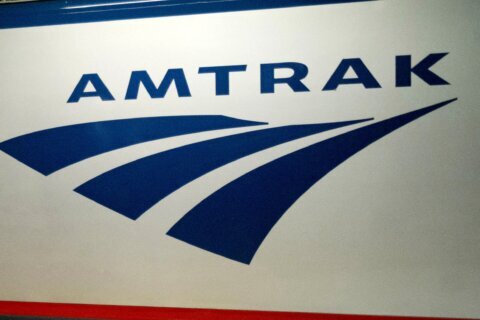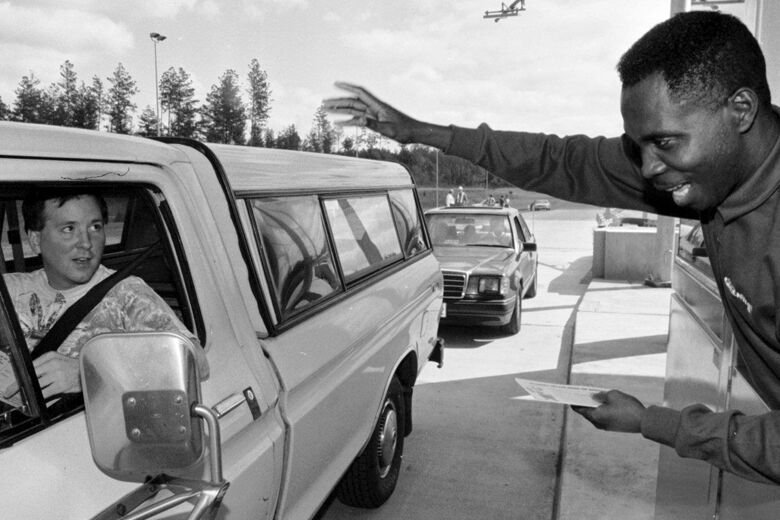
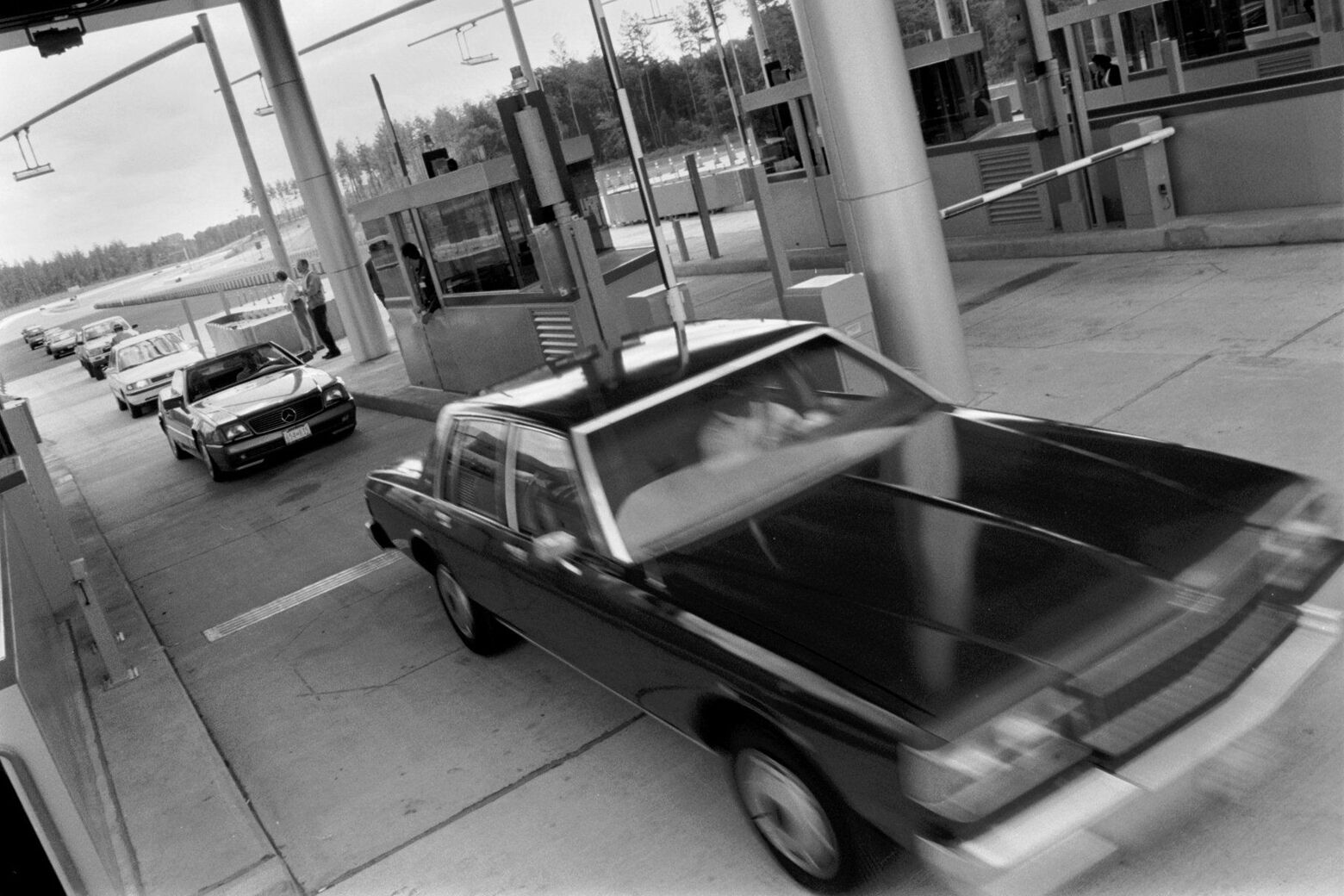
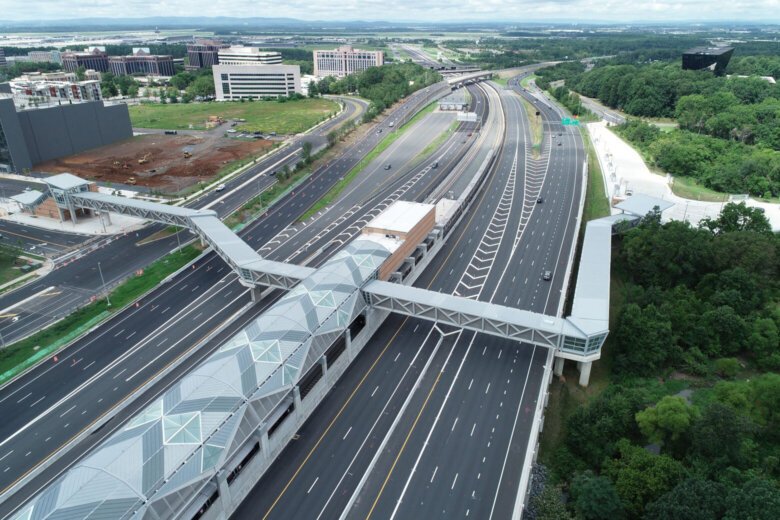
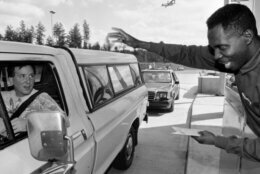
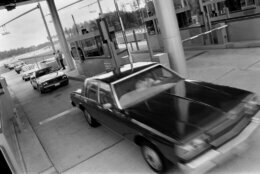
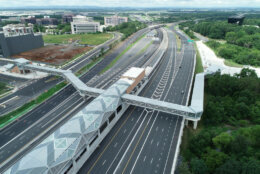
Dulles Greenway turned 25 years old this week, and owners of the 14-mile highway stretching from Virginia’s Leesburg to near Dulles International Airport are hoping its next quarter-century will raise the number of drivers who use it.
Known locally as “The Greenway,” Virginia’s first private toll road since 1816 opened to drivers on Sept. 29, 1995. At the time, it cost $1 to ride the Greenway.
“The brainchild behind all of this was Maggie Bryant,” said Renee Hamilton, newly-appointed CEO of Toll Road Investors Partnership II — or TRIP II — which maintains and operates the Greenway.
A 1994 New York Times article, entitled, “A $326 Million Private Toll Road to Spur Growth,” detailed the importance of private local investors, led by Magalen O. Bryant of Middleburg: “The Bryant family is betting $68 million that it can preserve its scenic open space by channeling the growth will bring and achieve a return on its money at the same time.”
“A lot of her willpower went into making this happen, especially during a time when public funding was not available for a roadway like this,” Hamilton said.
At the time, creating and driving on a highway to speed the travel from Leesburg and smaller towns in the western portion of Loudoun to Tysons Corner and downtown Washington, D.C. seemed inviting.
“Before that, you would actually have to use Route 7, which at the time did have a number of stoplights,” said Hamilton.
In recent years, Loudoun County and Virginia Dept. of Transportation have been fast-tracking the construction of overpasses, and the removal of commute-stopping traffic lights.
From the start, drivers in the region found reasons to avoid the Greenway.
“After opening in 1995, traffic and revenues on the Greenway fell far short of expectations, with traffic volumes nearly 70% below projected levels,” according to a Department of Transportation description of the toll road project.
According to TRIP II, in September 2020 about 28,000 vehicles used the Greenway, daily.
Over the years — and currently — proposed toll increases often bring heated responses from drivers and county officials. Currently, rates are set at $4.75 and $5.80 during rush hours.
Hamilton said her goal, as the new CEO, will be find solutions: “Not only from the pure transportation standpoint, but really looking at our customers and what would be beneficial and valuable to them.”
She said safety and predictability of a commute on the Greenway are often cited as the reasons drivers are willing to pay a toll.
Paying to drive has become a big part of life around the nation’s capital. In 2011, Virginia reached agreement with Australian company Transurban to begin constructing High Occupancy Toll lanes — or HOT lanes. Since then, toll road projects and toll lanes, including on Interstate 395, Interstate 95 and Interstate 66 have become commonplace.
“This region is definitely evolving,” said Hamilton. “We just did it 25 years ago.”
Hamilton said the bottom line is, for a toll road operator to make money, drivers have to choose to take the route.
“It is a choice, and we recognize that. We are blessed by the people who have committed to making that choice, in helping them get back and forth to their families a lot faster.”




